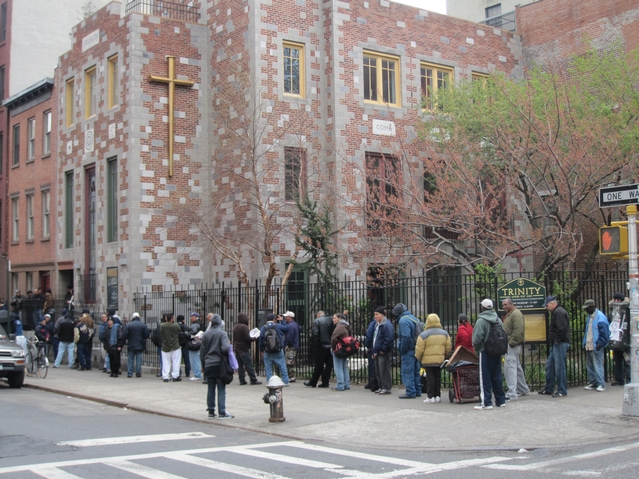Although things are supossedly getting better, tough economic times since 2008 have led to an increase of folks relying on food banks and soup kitchens. Stories of concerned people distributing donated or leftover food have been common over the past couple of years as communities come together to support those hit hardest. 
I can’t imagine how hard it is to be homeless or not have enough money to feed my family. Focusing on safe, nutritious food is moot if the money isn’t available to buy groceries. Or if there’s no home to take them too. Having a good heart and good intentions doesn’t automatically lead to safe meals.
According to Philly.com the Philadelphia Board of Health has approved new food safety regulations related to groups that feed the homeless outdoors.
Groups will be required to obtain a permit from the city and to have at least one member receive free food-safety training from the Health Department. The regulations come as the city proceeds with a ban in city parks on feeding the homeless and others who want free meals.
Further coverage in Bloomberg Businessweek says these new rules are politically-based and food safety is being used to clean up parks.
Homeless advocates say it’s not the cost that’s bothering them, since many municipalities are offering food-training classes for free. Instead, they’re concerned the bureaucratic intrusions will cause some small operations, such as those that don’t have access to approved kitchens, to shut down.
[Philadelphia Mayor Michael] Nutter said another policy change that bans outdoor feeding at city parks will increase “the health, safety, dignity and support” for the homeless.
The city has banned feedings in city parks, except for family picnics and public events, and is considering rules to protect the homeless from foodborne illness. Brian Jenkins [who works for Chosen 300 Ministries Inc] says the requirements, such as preparing items in approved facilities and attending food-safety classes, are a ploy to rid tourist areas of people deemed an eyesore.
“Jesus didn’t have to go to an approved kitchen,” Jenkins said. “If I have to pay a fine, then I will. I’m still going to feed outside, the way I always have. I’ll just put up a sign that says ‘God’s Family Picnic.’”
Responsible community members and organizations who are passionate about feeding those less fortunate still need to know about food-related risks and do their best to address them – dealing with a foodborne illness could contribute to an individual’s hardship.
